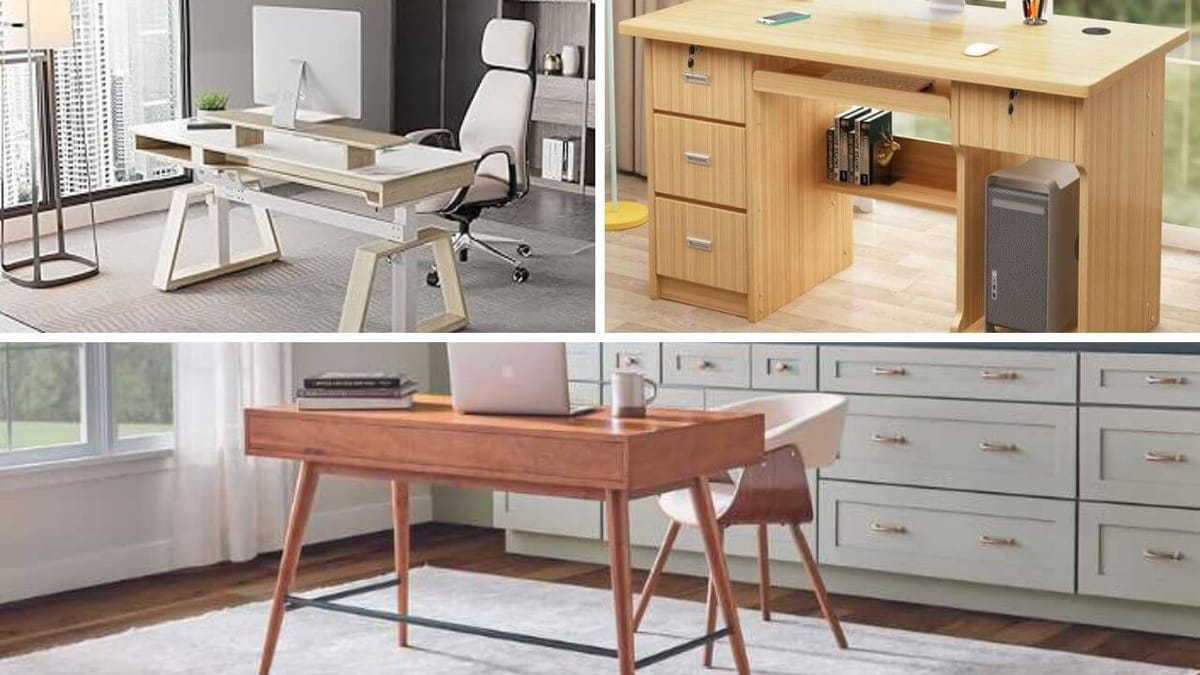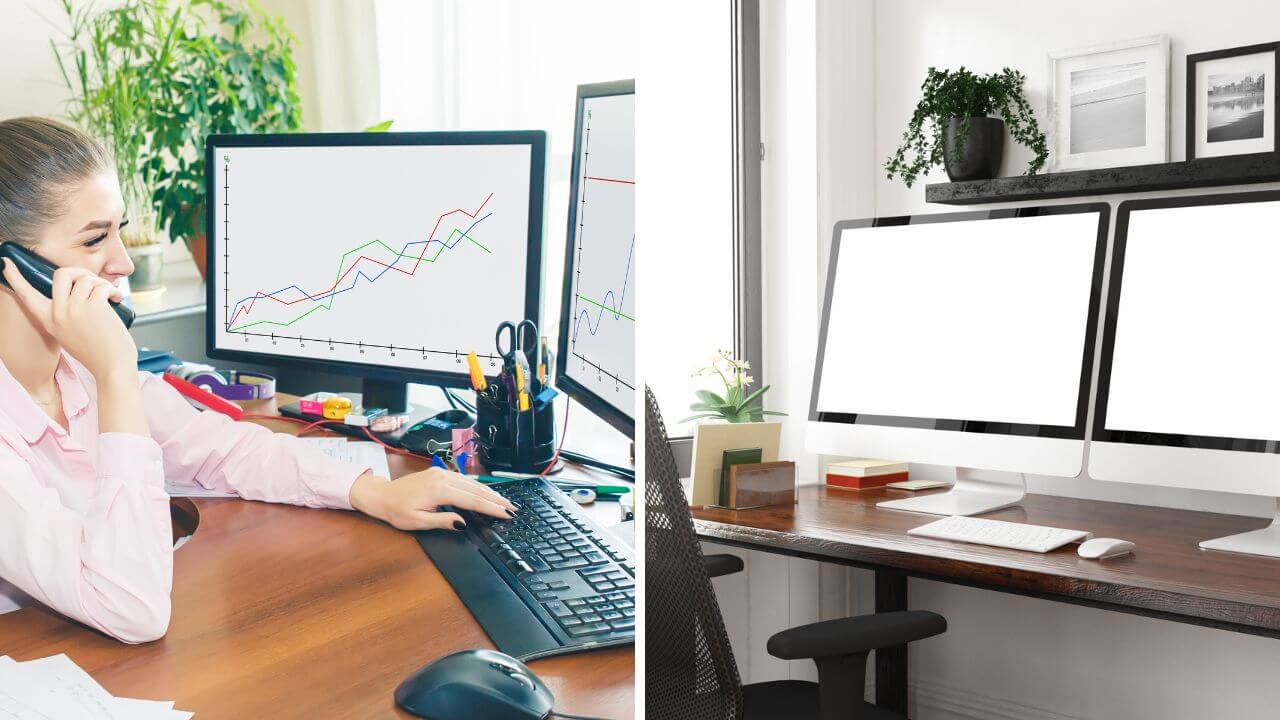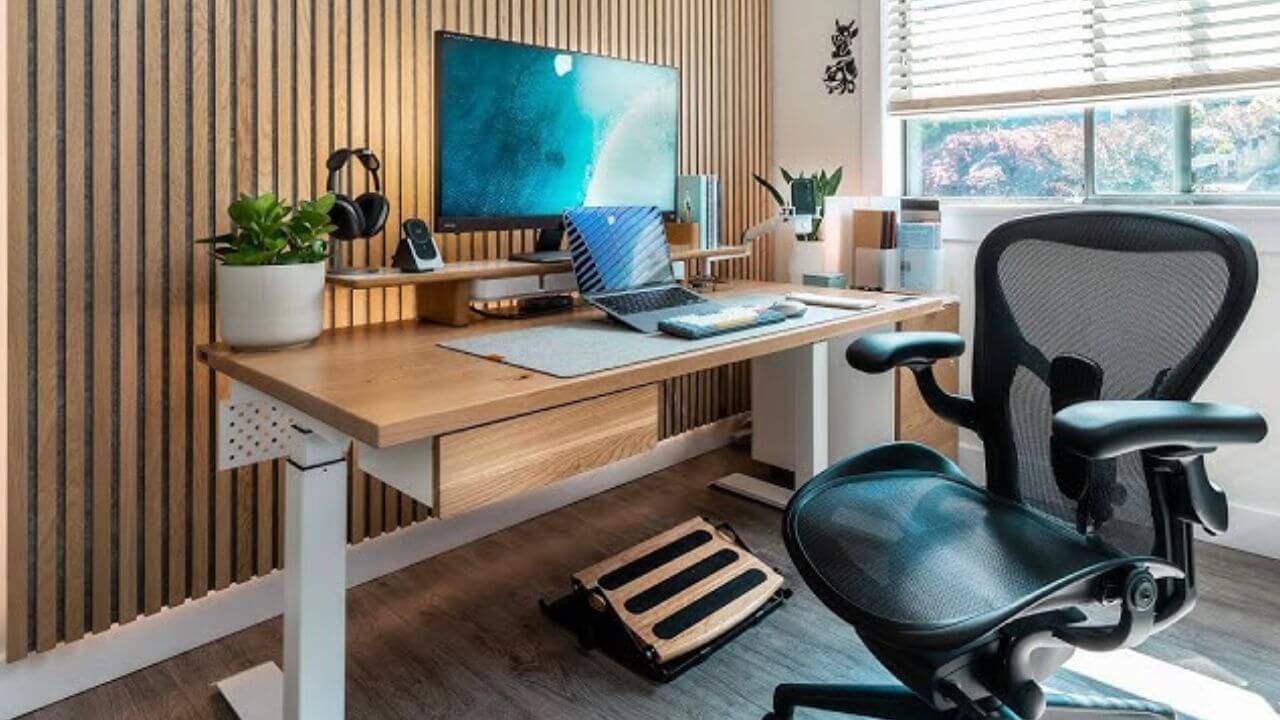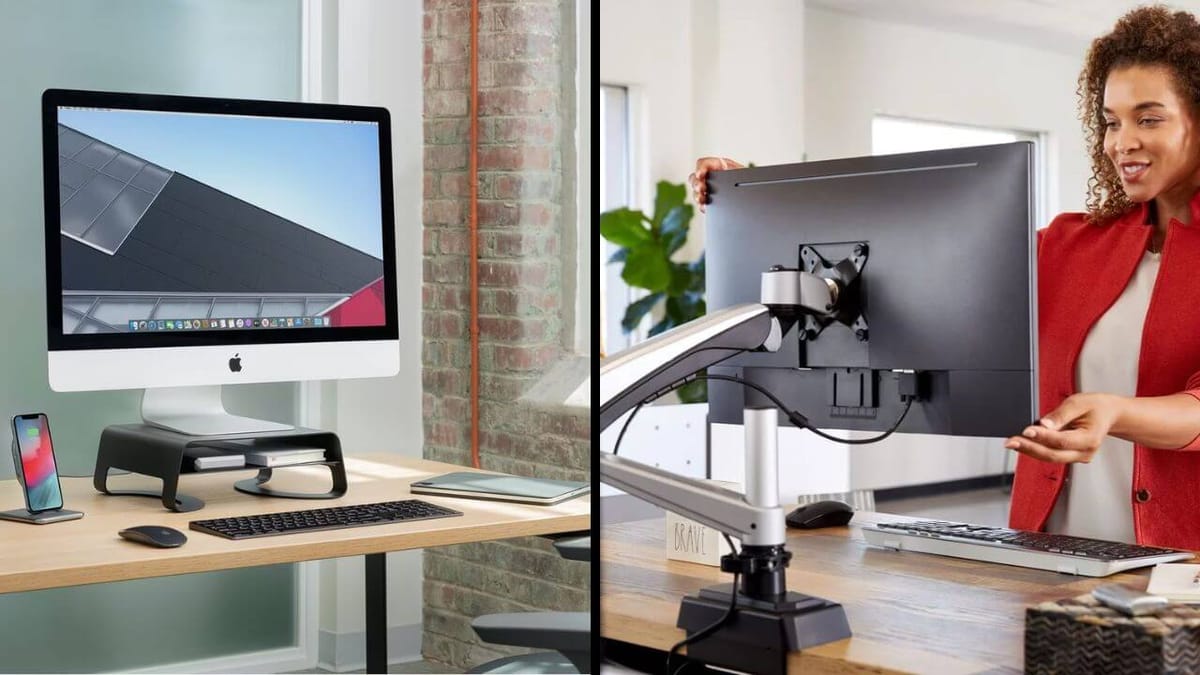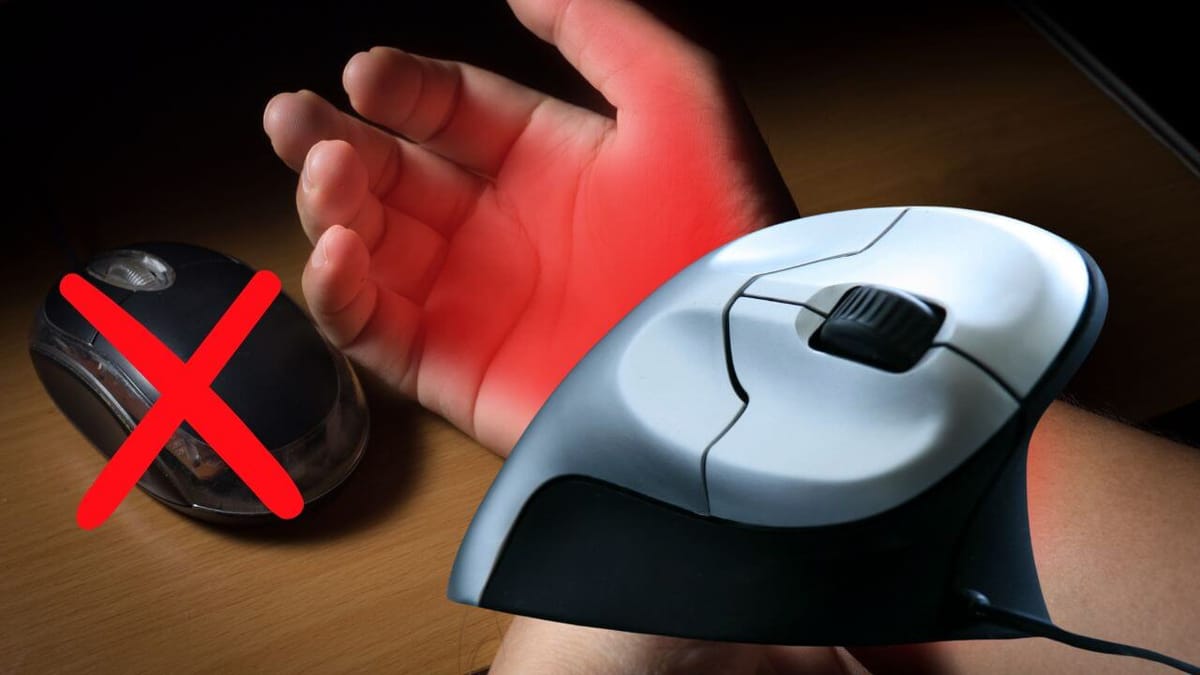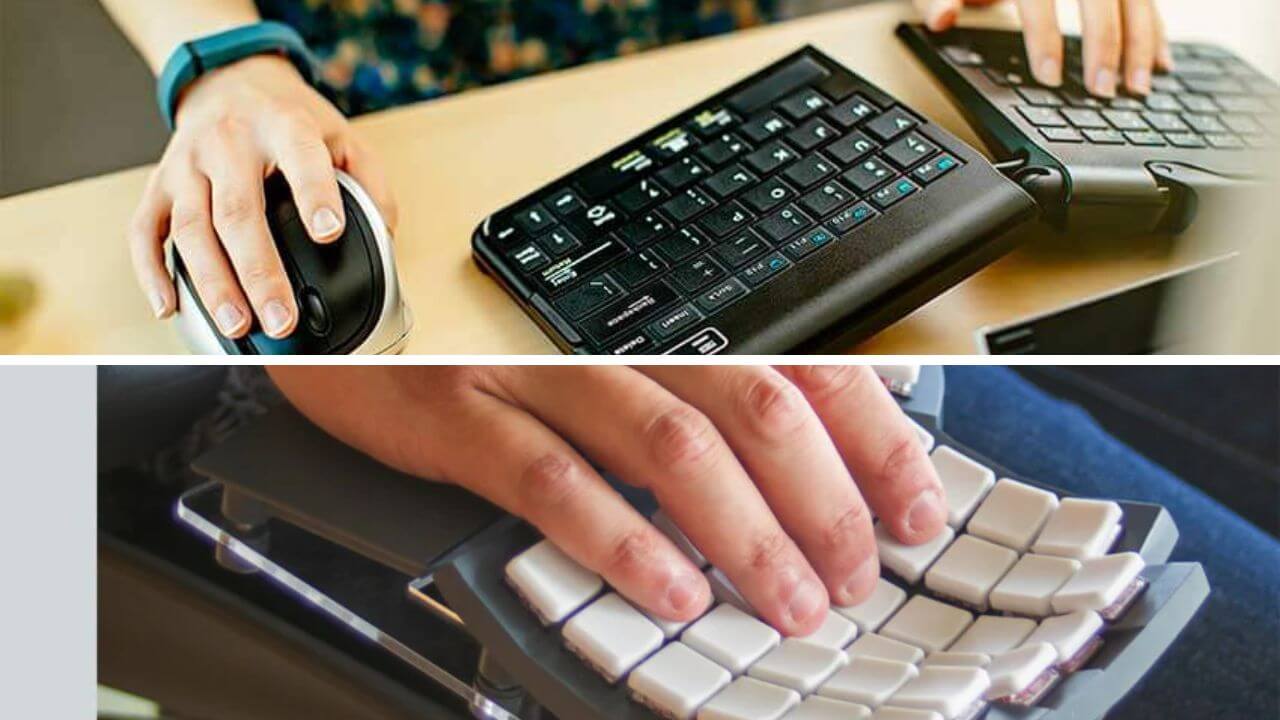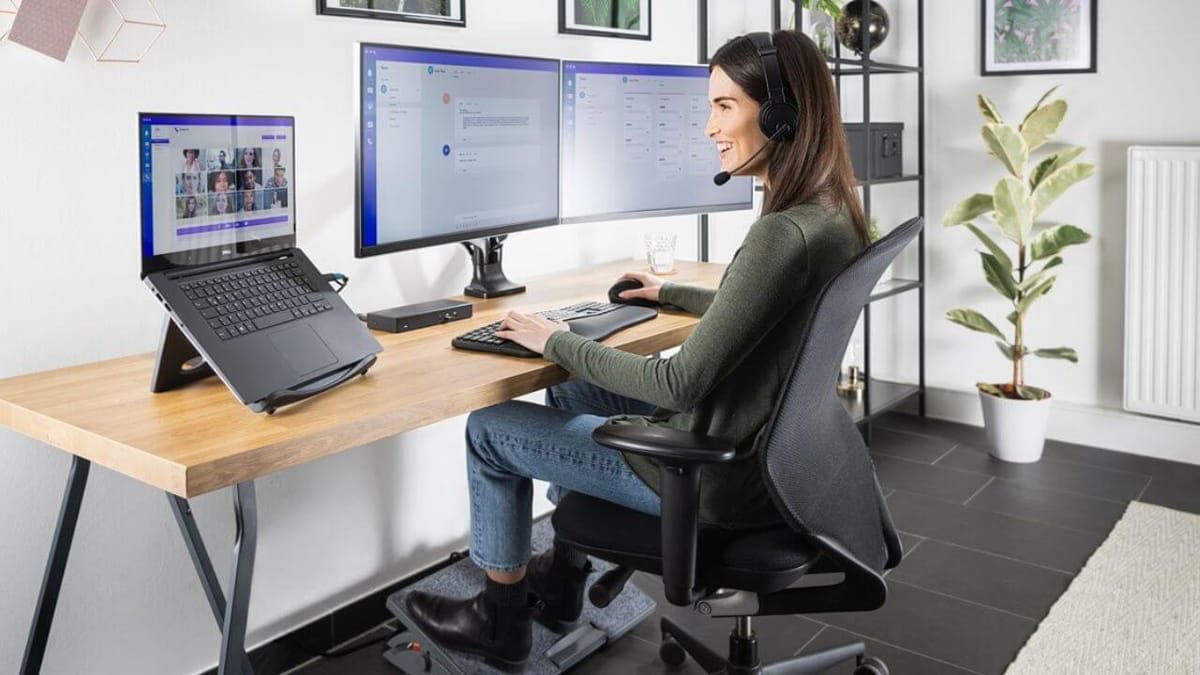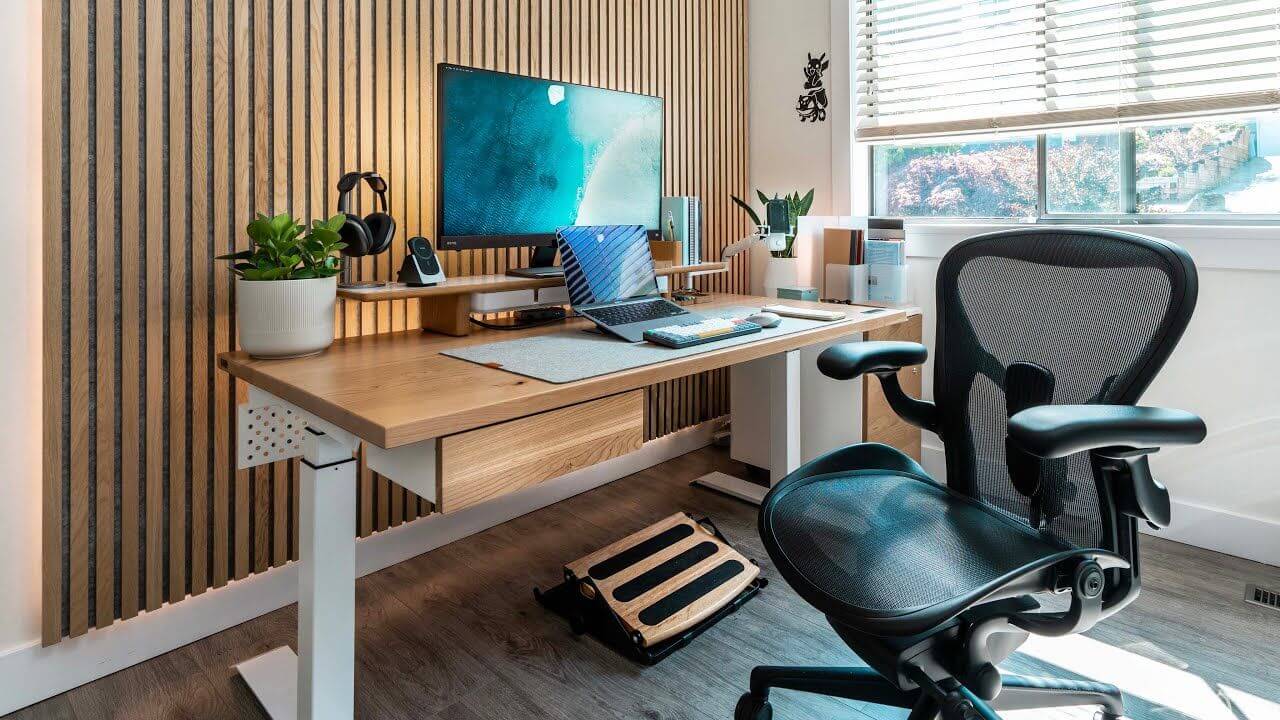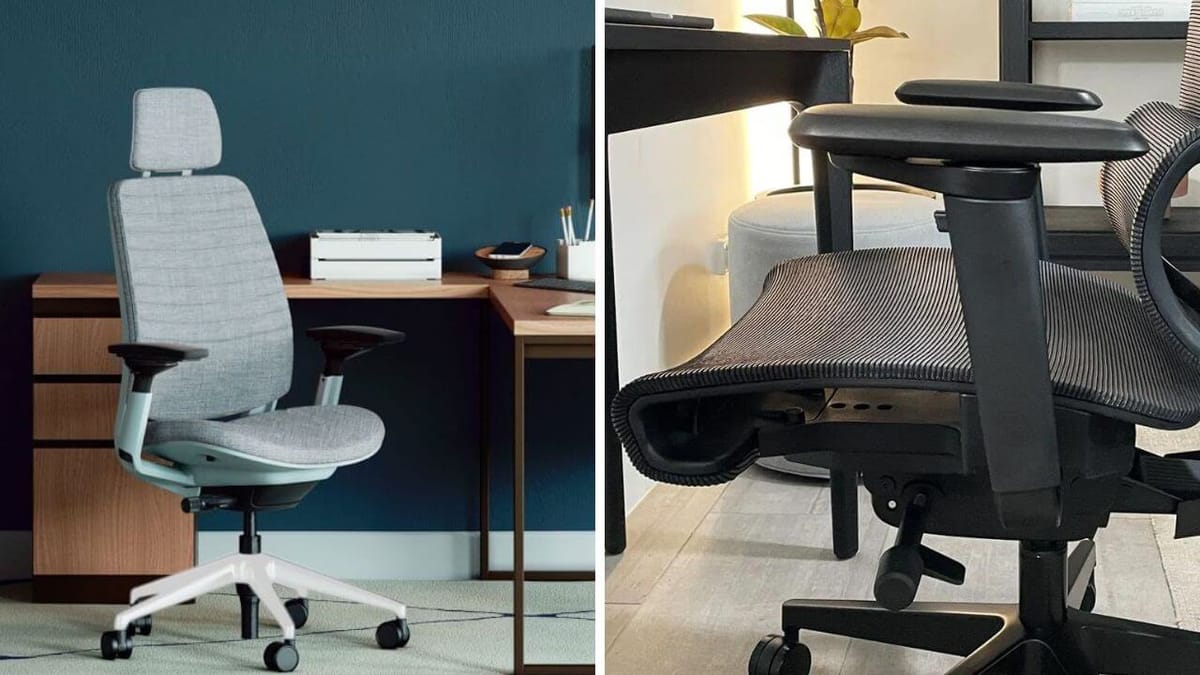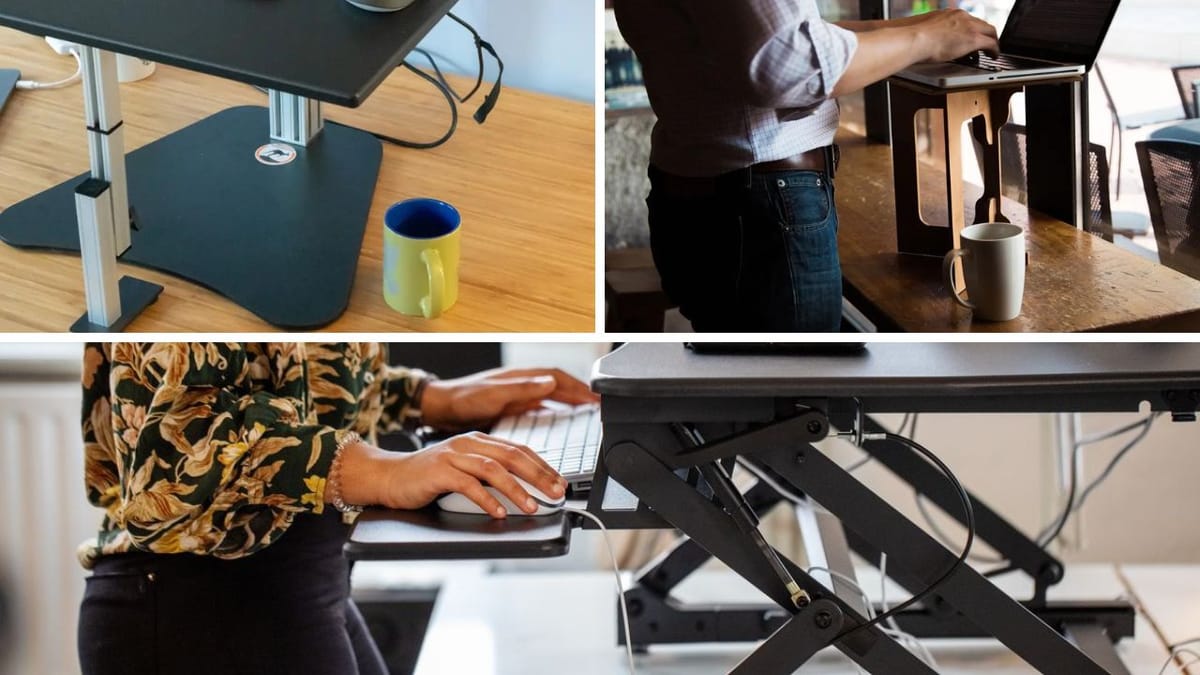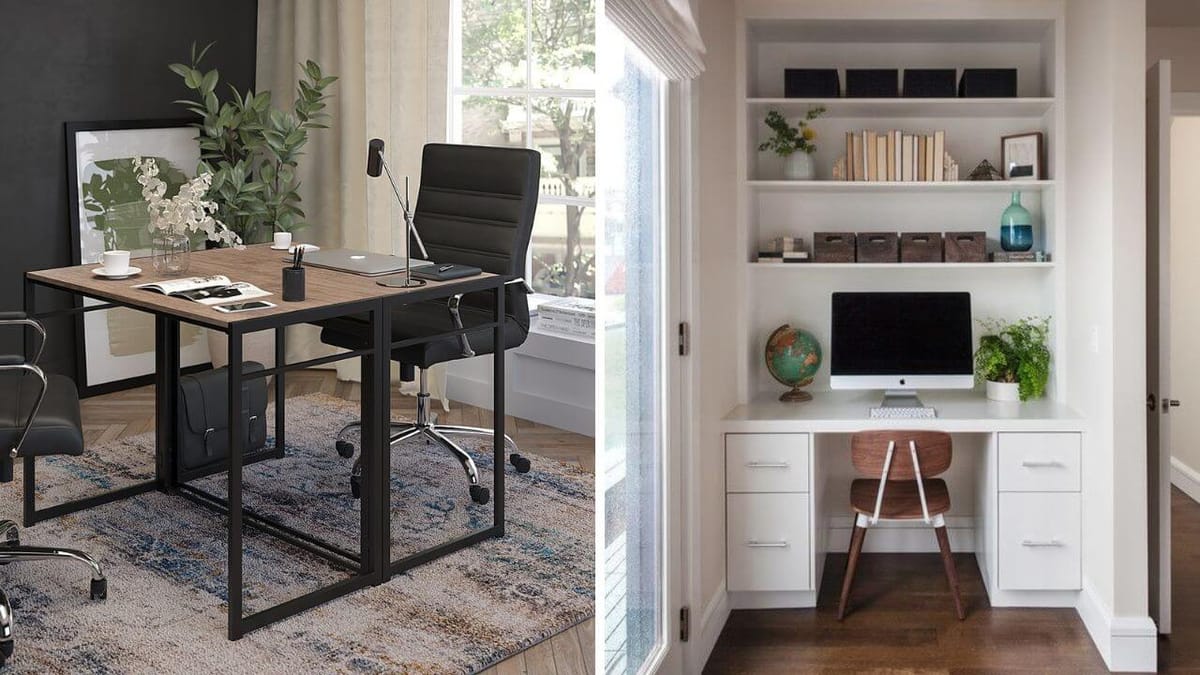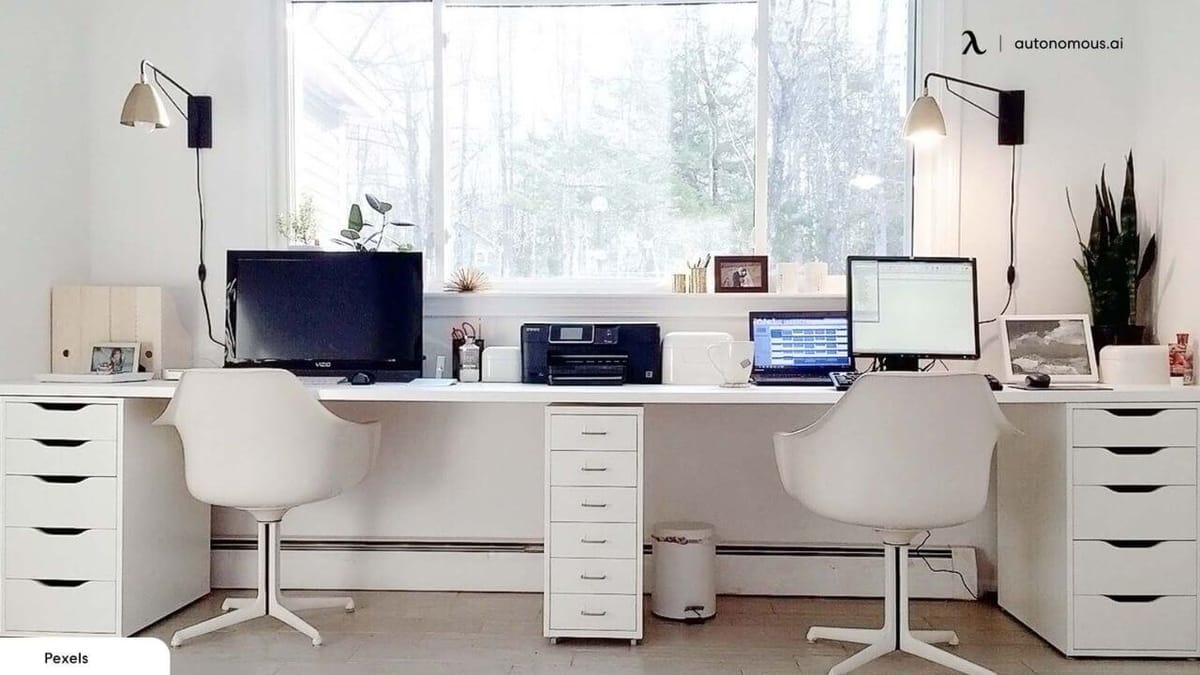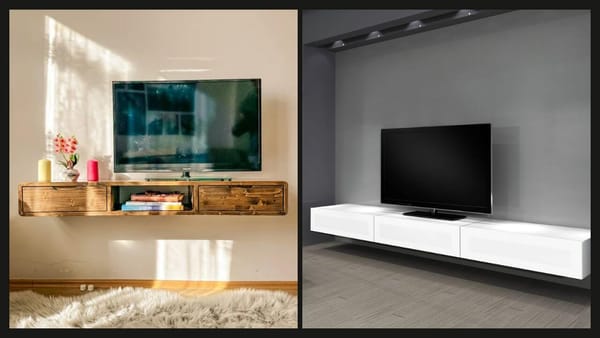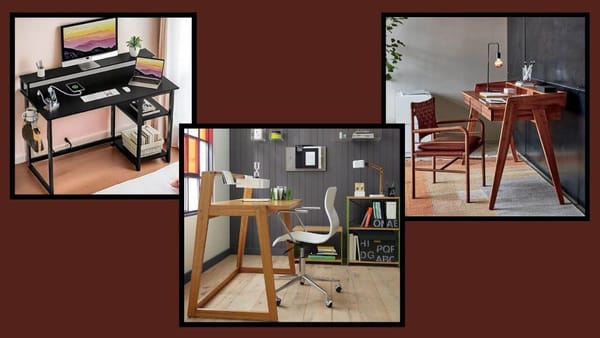Key Takeaways:
- Sit-stand desk converters offer a flexible and cost-effective solution for transitioning between sitting and standing positions.
- They can significantly improve posture, reduce back pain, and enhance overall productivity.
- Choosing the best standing desk converter depends on individual needs, workspace constraints, and budget.



Introduction
In today's fast-paced work environment, the traditional desk setup is being challenged by innovative solutions like sit-stand desk converters. These devices promise to revolutionize the way we work by allowing seamless transitions between sitting and standing positions.
But are sit-stand desk converters effective? This article delves into the benefits, types, and considerations of using standing desk converters, providing a comprehensive guide for those looking to enhance their workspace ergonomics.
The Rise of Sit-Stand Desk Converters
The concept of sit-stand desk converters has gained traction as more people become aware of the health risks associated with prolonged sitting. Studies have shown that sitting for extended periods can lead to various health issues, including obesity, cardiovascular disease, and musculoskeletal problems.
As a result, the demand for solutions that promote movement and flexibility in the workplace has skyrocketed.
A desktop sit-stand converter offers a practical and affordable alternative to a full-size standing desk. These devices can be placed on top of an existing desk, allowing users to switch between sitting and standing positions with ease.
This flexibility makes them an attractive option for those who want to improve their workspace without investing in completely new desks, like electric standing desks.
Health Benefits of Standing Desk Converters
One of the primary reasons people invest in sit-stand desk converters is the potential health benefits. Standing desk converters can help reduce the risk of chronic diseases associated with prolonged sitting.
By encouraging movement and promoting better posture, these devices can alleviate back pain, improve circulation, and boost energy levels.
Moreover, standing desk converters can enhance mental well-being. A standing position while working has been linked to increased alertness and productivity. By incorporating regular movement into the workday, individuals can experience improved focus and reduced stress levels.
This holistic approach to workplace ergonomics can lead to a healthier and more productive work environment.
Types of Sit-Stand Desk Converters
There are various types of sit-stand desk converters available, each designed to cater to different needs and preferences. Some popular options include:
Manual Sit Stand Desk Converters
Manual sit stand desk converters are operated by hand, allowing users to adjust the height of their workstation with minimal effort. These converters are typically more affordable and straightforward to use, making them a popular choice for those on a budget.



Electric Sit-Stand Desk Converters
Electric sit-stand desk converters offer the convenience of motorized height adjustment. With the push of a button, users can effortlessly switch between sitting and standing positions.
These converters are ideal for those who prefer a more high-tech solution and are willing to invest in additional features.
Spring-Assisted Sit-Stand Desk Converters
Spring-assisted sit-stand desk converters use a spring mechanism to facilitate height adjustment. These converters provide a smooth and controlled transition between sitting and standing positions, making them a reliable option for users seeking a balance between manual and electric converters.
Choosing the Best Standing Desk Converter
Selecting the best standing desk converter depends on several factors, including individual needs, workspace constraints, and budget. Here are some key considerations to keep in mind:
Workspace Constraints
Before purchasing a sit-stand desk converter, it's essential to assess the available desk space. Measure the dimensions of your current desk and ensure that the converter will fit comfortably without overcrowding the workspace.
Additionally, consider the weight capacity of the converter to ensure it can support your computer and other office essentials.
Budget
Sit-stand desk converters come in a wide range of prices, from budget-friendly options to high-end electric standing desk converter models. Determine your budget and look for a converter that offers the best value for money.
Keep in mind that investing in a high-quality converter can provide long-term benefits and improve your overall work experience
When choosing the best standing desk converter for a standing desk workstation, prioritize ergonomic features that enhance comfort and usability. Look for converters with adjustable height settings, a spacious work surface, and a stable design.
Additional features like monitor mounts, built-in cable management, and a keyboard tray can further improve the functionality of your workspace.
Setting Up Your Sit-Stand Desk Converter
Proper setup is crucial to maximizing the benefits of your sit-stand desk converter. Follow these steps to create an ergonomic and efficient workstation:
Positioning the Converter
Place the sit-stand desk converter on a stable and flat surface. Ensure that the converter is centered on your desk to provide a balanced and comfortable work area.
Adjust the height of the converter so that your elbows are bent at a 90-degree angle when typing, and your monitor is at eye level to prevent neck strain.



Organizing Your Workspace
Arrange your office equipment and essentials in a way that promotes efficiency and reduces clutter. Use monitor arms to position your screens at the optimal height and angle.
Keep frequently used items within easy reach to minimize unnecessary movement and maintain a tidy workspace.
Incorporating Movement
To fully benefit from your sit-stand desk converter, incorporate regular movement into your work routine. Alternate between sitting and standing positions throughout the day, and take short breaks to stretch and walk around. This dynamic approach can help prevent fatigue and improve overall well-being.
Case Study: Improved Productivity with Sit-Stand Desk Converters
A case study conducted by a leading tech company revealed significant improvements in employee productivity and well-being after implementing sit stand desk converters.
The company provided converters to a group of employees and monitored their performance over six months.
Results
The study found that employees who used sit-stand desk converters reported a 20% increase in productivity and a 30% reduction in back pain.
Additionally, participants experienced higher energy levels and improved focus, leading to a more positive work environment.
Employee Feedback
Employees praised the flexibility and ease of use of the sit-stand desk converters. Many noted that the ability to switch between sitting and standing positions helped them stay more engaged and motivated throughout the day.
The company concluded that investing in a sit-stand desk converter was a worthwhile decision that contributed to overall employee satisfaction and performance.
Common Misconceptions About Sit-Stand Desk Converters
Despite the growing popularity of sit-stand desk converters, several misconceptions persist. Addressing these myths can help individuals make informed decisions about their workspace setup.



Misconception 1: Standing All Day is Better Than Sitting
While the best standing desk converters promote movement, it's essential to strike a balance between sitting and standing. A prolonged standing position can lead to discomfort and fatigue, just as prolonged sitting can.
The key is to alternate between standing and sitting positions and incorporate regular breaks to move and stretch.
Misconception 2: Sit-Stand Desk Converters are Expensive
While some high-end models can be pricey, there are many affordable sit-stand desk converters available. Manual and spring-assisted converters offer cost-effective solutions without compromising on quality. It's possible to find a converter that fits your budget and meets your ergonomic needs.
The Future of Sit-Stand Desk Converters
As the demand for flexible and ergonomic workspaces continues to grow, the future of sit-stand desk converters looks promising.
Innovations in design and technology are likely to lead to more advanced and user-friendly converters that cater to a wide range of preferences and requirements.
Technological Advancements
Future sit-stand desk converters may incorporate smart features, such as programmable height settings, integrated health tracking, and voice-activated controls.
These advancements can further enhance the user experience and promote a healthier and more productive work environment.
Sustainable Design
Sustainability is becoming a key consideration in product design. Future sit-stand desk converters may utilize eco-friendly materials and manufacturing processes, reducing their environmental impact.
This focus on sustainability can appeal to environmentally conscious consumers and contribute to a greener workplace.
Conclusion
Sit-stand desk converters offer a practical and effective solution for creating a more dynamic and ergonomic workspace. By allowing users to switch between sitting and standing positions, these devices can improve posture, reduce back pain, and enhance overall productivity.
With various types and features available, it's possible to find a converter that meets individual needs and budget constraints. As the demand for flexible workspaces continues to grow, sit-stand desk converters are likely to play a significant role in shaping the future of office ergonomics.



Summary
Sit-stand desk converters are an innovative solution for those looking to improve their workspace ergonomics. These devices offer numerous health benefits, including reduced back pain, improved posture, and increased productivity.
With various types and features available, individuals can find a converter that fits their needs and budget. Proper setup and regular movement are essential to maximizing the benefits of a sit-stand desk converter.
As technology and design continue to evolve, the future of sit-stand desk converters looks promising, with potential advancements in smart features and sustainable materials.
FAQ
Are sit-stand desk converters worth the investment?
Yes, sit-stand desk converters are worth the investment for those looking to improve their workspace ergonomics. These devices can reduce back pain, improve posture, and enhance productivity.
With various types and price ranges available, it's possible to find a budget standing desk converter that meets your needs.
How often should I switch between sitting and standing positions?
It's recommended to alternate between sitting and standing positions every 30 to 60 minutes. Incorporating regular movement and short breaks into your work routine can help prevent fatigue and improve overall well-being.
Can sit-stand desk converters support multiple monitors?
Yes, many sit-stand desk converters are designed to support multiple monitors. Look for converters with a spacious work surface and monitor mounts to accommodate a monitor arm for dual-monitor setups.
Ensure that the converter's weight capacity can support your monitors and other office essentials.
Click here and find our article on the best modern home office desks!

